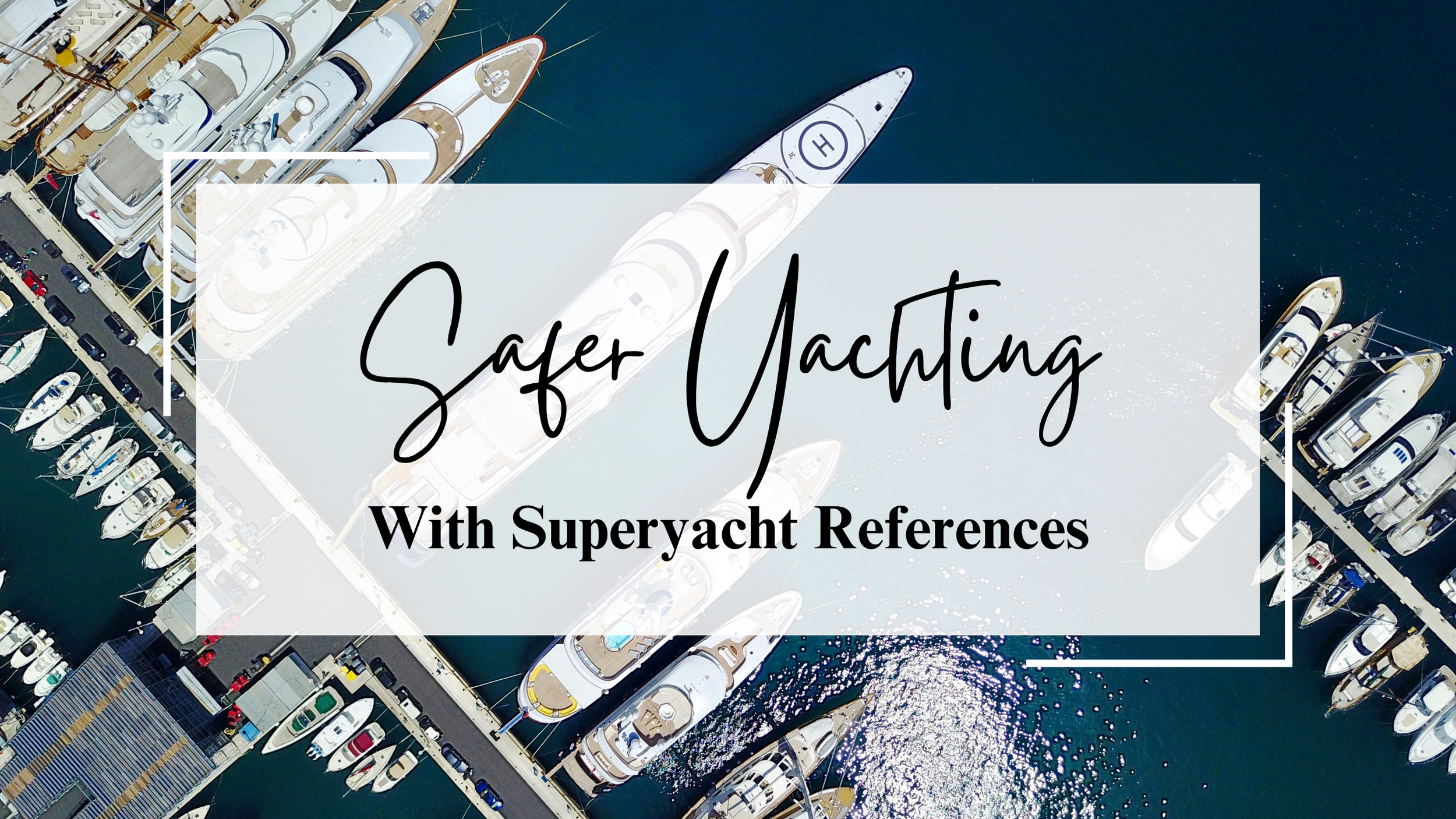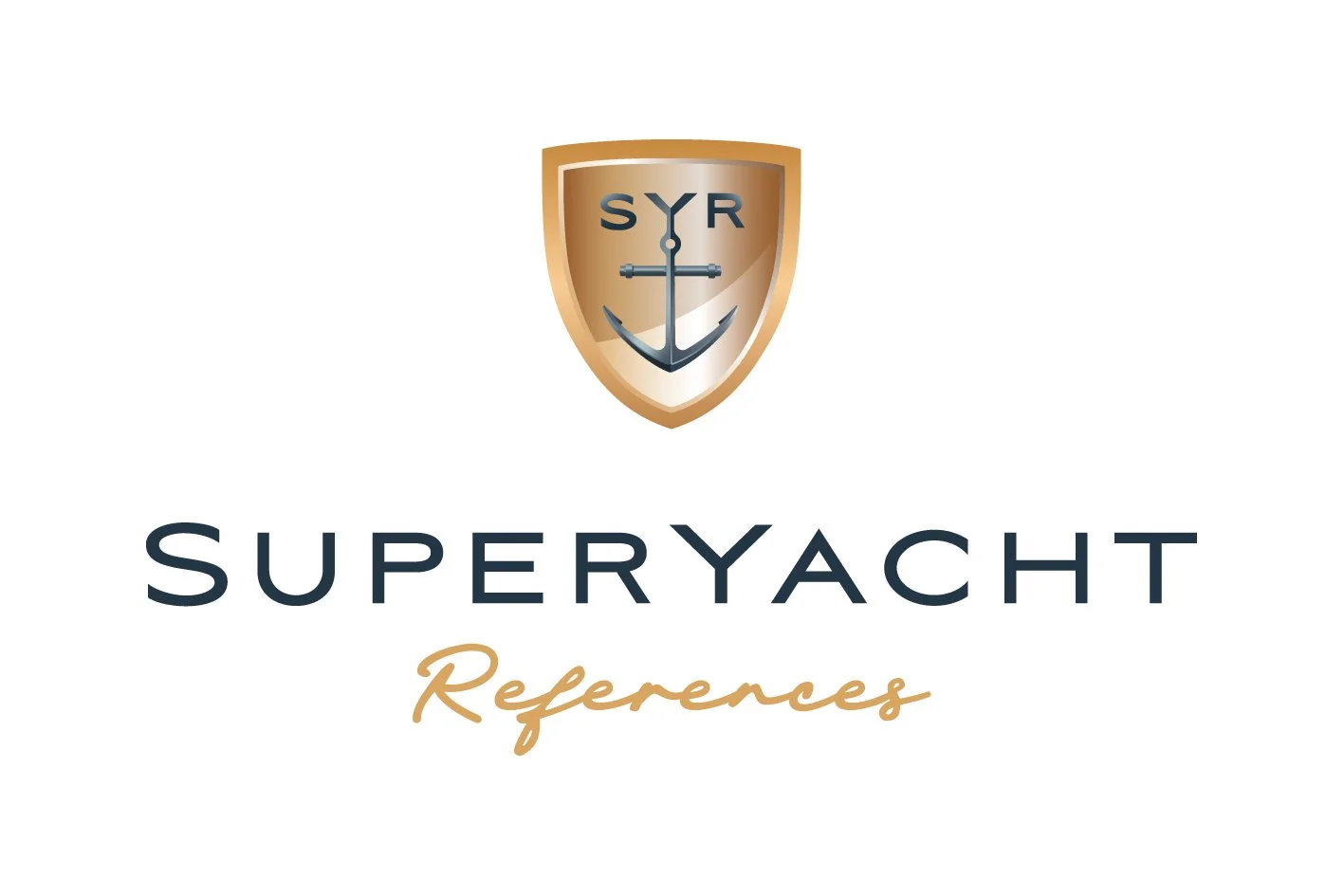Written by Yachts Mermaids & Superyacht References
At Yachts Mermaids, my mission has always been to advocate for seafarers’ safety, well-being, and professional development. A significant aspect of this work involves highlighting the tools and partners that can help us advance the industry.
That’s why I’m proud to be collaborating with Superyacht References (SYR) to bring more awareness and education around professional vetting, transparent hiring, and safer work environments for yacht crew.
The following article explains why crew vetting should no longer be seen as optional, what SYR is doing to change the system, and how collaboration can create real cultural change onboard.
Why Change Is Needed
While yachting has made progress in many areas, recruitment practices and onboard culture remain stubbornly outdated. Too often, captains, HODs, recruiters, and management companies are under immense pressure to fill roles quickly. In that rush, corners get cut, and hiring decisions are made on word-of-mouth or gut feelings rather than verified references or proper checks. It’s in these moments that red flags are most easily missed.
The consequences are serious. Inadequate vetting has placed crew in unsafe situations, while a culture of silence continues to surround misconduct, harassment, and mental health. Many crew are unsure who to turn to—or fear losing their position if they speak up. Without systemic change, these issues will only keep repeating.
The good news is that solutions do exist. There are resources designed to support recruitment, ease the workload, and raise standards. Superyacht References is one of them—offering a smarter, safer, and more professional way forward.
Making Vetting the Standard
This is where Superyacht References comes in. Founded by an experienced captain, Mark McDowell, who saw the cracks in the system firsthand, SYR is working to transform recruitment into a transparent, accountable process.
Their platform offers:
Verified reference checks
Qualification and certification validation
Optional criminal record checks and drug testing
Optional psychometric and self-assessments, giving insight into teamwork, soft skills, and cultural fit
This multi-layered approach doesn’t guarantee perfection—but it dramatically reduces risk and creates a safer, more professional environment onboard. Vetting should no longer be seen as an optional “extra”; it is essential for safeguarding both crew and owners.
Simplifying Safe Recruitment
For captains, HODs, and recruiters, one of the biggest challenges is time. The reality is that thorough checks often get pushed aside because the priority is to fill positions quickly. SYR addresses this by taking on the vetting workload—delivering verified candidate profiles that go far beyond availability and CV claims.
For crew, the service is completely free. A verified profile not only protects their reputation but also makes them stand out for the right reasons. This creates a win-win: safer hires for yachts, and stronger career opportunities for crew.
Beyond Recruitment: Mentorship & Support
Superyacht References is going further than just background checks. They are developing an exciting mentoring programme to pair junior crew with experienced mentors—creating a dedicated support network for mental wellbeing, confidence, and professional growth.
Once the programme is up and running, I am excited to announce that Yachts Mermaids will be a part of this, helping to deliver valuable and relevant workshops, as well as offering mentorship. Together, we’ll provide the guidance, advocacy, and practical tools that enable crew to navigate their careers with greater safety, clarity, and confidence.
Driving Industry-Wide Change
Individual vetting is only part of the bigger picture. To truly protect crew, the industry also needs clear reporting channels, anti-harassment policies, and a shift away from silence and stigma.
Encouragingly, progress is underway:
From 1 January 2026, amendments to the STCW will require all seafarers to receive training on preventing and responding to harassment, bullying, and assault.
Updates to the MLC are also being developed to better safeguard crew welfare.
Behind the scenes, there is also a growing force of industry leaders coming together to hold one another accountable and drive cultural change. These are captains, managers, crew advocates, and organisations within the industry who are united in the goal of building safer practices and stronger protections for crew.
Yachts Mermaids and Superyacht References are proud to be part of this movement, actively contributing to collective efforts for accountability and higher standards.
For crew who may be unsure how to report an incident, the Safety First Guide to Reporting Issues Onboard provides a clear, step-by-step resource on where to turn, how to document concerns, and how to protect yourself when raising issues.
The mission is clear: to help yachting move from reactive crisis management to proactive prevention.
A Culture Shift for the Future
If yachting is to thrive, crew safety and wellbeing must be treated as non-negotiables. Verified vetting, mentoring, and transparent support systems are not just “nice to have”—they are the foundation of a professional, respectful, and sustainable industry.
By collaborating with platforms like Superyacht References, captains, managers, and recruiters can move beyond quick fixes and start making safer, smarter hiring decisions that truly protect both crew and operations. For crew, free access to verified profiles and mentorship means greater career security and the confidence of knowing they are backed by a trusted system.
The future of yachting depends on this culture shift—from prioritising speed and discretion to prioritising safety, accountability, and care. That shift starts with action: using verified vetting as a standard practice, and leaning on partners like Superyacht References to take on the heavy lifting.
Crew can register with Superyacht References for free today, and captains, HODs, recruiters, and managers can begin requesting verified reports to make informed, trusted decisions that set their teams up for long-term success.
The question now is simple: Will you be part of the change—or let old habits continue? Sign up to Superyacht References here!



















